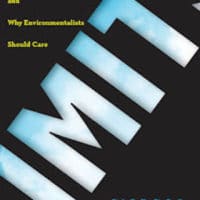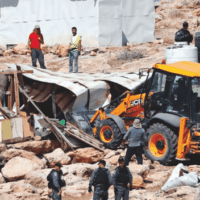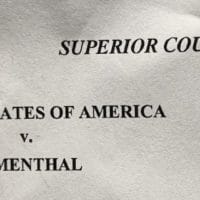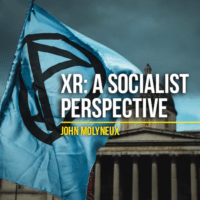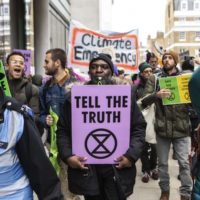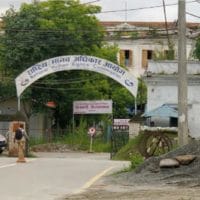-
Limits: Why Malthus Was Wrong and Why Environmentalists Should Care
This short, readable and stimulating book begins with the author overturning perceived knowledge about the 18th century economist Robert Malthus.
-
Bedouin mass eviction – Israel to drive Palestinians off their historic lands
Last week 36,000 Bedouin–all of them Israeli citizens–discovered that their state is about to make them refugees in their own country, driving them into holding camps. These Israelis, it seems, are the wrong kind.
-
Weaponizing Venezuela’s ex-ruling elite
When we think “immigrants in America” we rarely consider those who are privileged and weaponized in service of American Empire.
-
XR: A Socialist perspective
With Extinction Rebellion growing rapidly across the world in the fight against climate change, John Molyneux gives his perspective on how socialists should respond to this phenomenon.
-
Election rollercoaster
Germany is really riding a rollercoaster these days, but this is no amusement park; there’s lots of suspense but rarely joy – and quite a few politicians are very unwell! Not only politicians!
-
“In terms of the coral reefs and all the dangers to the ecosystems, Mauritius is one of the countries most at risk”
While environmentalist Greta Thunburg was at the UN, John Bellamy Foster, environmental sociologist and editor of the Monthly Review, was in Mauritius to discuss climate change. Weekly had an opportunity to talk with him.
-
British workers
As we wait impatiently while the Brits go through the interminable travail of Brexit, let us have a look at who they are. Not directly in a social, cultural or political sense, but by reviewing the data on UK employment. Work gives a foundation for people’s daily lives and will, in turn, have an impact on society, culture and politics.
-
Flying above the clouds: the U.S. military and climate change
Climate change is occurring, highlighted by dramatically shifting weather patterns and ever more deadly storms, floods, droughts, and wildfires. And the evidence is overwhelming that it is driven by the steady increase in greenhouse gases in our atmosphere, especially carbon dioxide and methane, produced by our fossil fuel-based economic system.
-
Extinction Rebellion: We need to talk about the future
This is a love letter to Extinction Rebellion.
-
Chile over 1 Million people march in Chile’s largest protest
Protests that started over a hike in public transport fares boiled into massive marches. The government responded with heavy repression. At least 18 people have been killed, hundreds have been injured, and over 7,000 arrested.
-
Indigenous organizations propose a People’s Parliament
They seek to develop an economic model to prevent the application of IMF policies against the Ecuadoreans.
-
Bolivia on alert: Coup plot underway!
Cuban Foreign Minister Bruno Rodríguez denounces destabilization campaign and violence.
-
Western progressives and the imperialist Inquisition
Military curfews or states of siege have been imposed recently in Guatemala, Ecuador and Chile, with the army deployed to control protests. Western powers give these countries’ right wing governments the benefit of the doubt despite them being guilty as charged.
-
Top US Army official: Build AI weapons first, then design safety
“We need to decide if we want to live in a world in which autonomous weapons systems identify and attack targets faster than humans can think.”
-
Globalisation’s corroding edifice
The World Bank’s World Development Report (WDR), published every year since 1978, plays a similar role to that of the state of the union address in the US, in which the president hopes to keep the faith of the Congress and public.
-
There’s something that’s ours on those streets and we’re going to take it back
In Lebanon, it was a tax on the use of WhatsApp; in Chile, it was the rise in subway fares; in Ecuador and in Haiti, it was the cut in fuel subsidies. Each of these conjunctures brought people to the streets and then, as these people flooded the streets, more and more joined them.
-
Whitewashing neoliberal repression in Chile and Ecuador
If the first casualty of war is truth, its self-anointed purveyors in the international media have much blood on their hands indeed.
-
What the Chicago Teachers Union and United Auto Workers strikes teach us
The strikes have enabled the workers to feel their real strength. These two strikes give us a sign of the role the trade unions, the most powerful organizations of working people, will play in the future.
-
America sponsors far-right holocaust revisionist exhibit in Kiev (Part I)
Why is a major federal agency funded by Congress helping push this bile on the Ukrainian people?
-
Police killed CPN leader Paudel in cold blood: NHRC
The NHRC has recommended that the government should investigate officers issuing orders to police officials who acted against Paudel and bring them to book.

